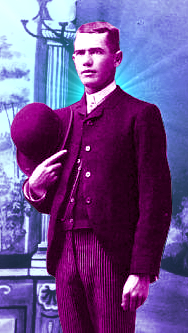Forward-thinking path laid out
 Researchers say a revolutionary business mindset can be taught.
Researchers say a revolutionary business mindset can be taught.
Major innovators like Thomas Edison, Henry Ford, Steve Jobs and Elon Musk are known for being able to imagine into the future rather than reenacting the past - a strategy that a new study says is crucial for business success in a rapidly changing world.
The key to revolutionary business strategy lies in the strategist's ability to use a future-focused kind of imagination, and a team in the US says this kind of thinking can be taught.
“You couldn't get a Cirque du Soleil by just trying to make another circus,” says researcher Luis Martins from The University of Texas.
Martins says that the current standard curriculum in even the top-tier business schools places too little emphasis on strategic imagination.
The accepted methodology teaches students how to analyse the past and adapt to the present, which Martins says are crucial components of strategy, but without future-focused imagination, he says, they will not lead to breakthrough business achievements.
The few courses that do offer students forward-thinking strategic business frameworks are usually electives, not requirements.
Anticipatory thinking, analogical reasoning and design thinking are all techniques that can catalyse strategic imagination, Martins says.
In his classes, students follow technological, economic and social trends that may come together in the future to brainstorm new goods that could, in some cases, open entirely new markets.
He also encourages thinking about how established business models can be used in new market spaces.
Martins says design thinking - the process of using design to create new offerings and improve the user experience - also has the capacity to revolutionise a business, noting Apple's attention to the appearances of its products as an example of how design can transform an entire industry.
“I think we are running out of runway for mass market thinking and just low-price thinking,” Martins says.
“So, increasingly, as markets fragment and as people desire something more than just low cost, I think strategic imagination will become an ever-more-important aspect of the strategist's job.”








 Print
Print